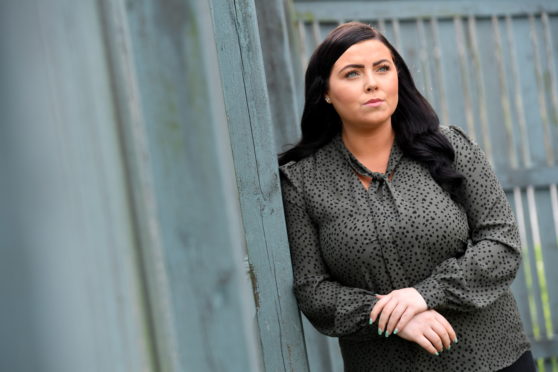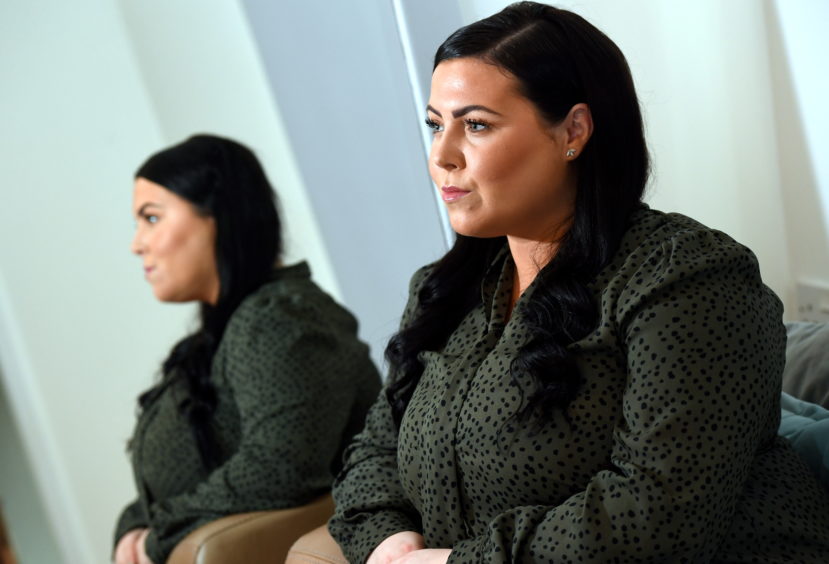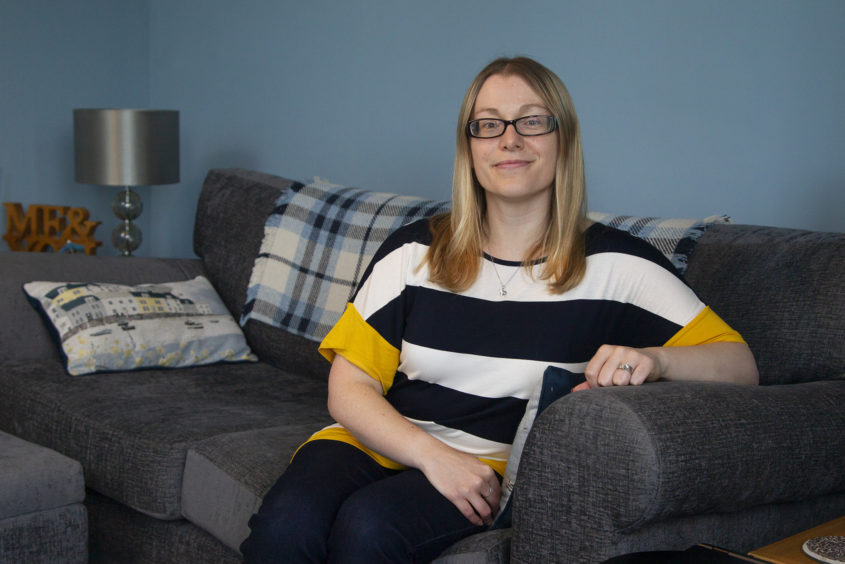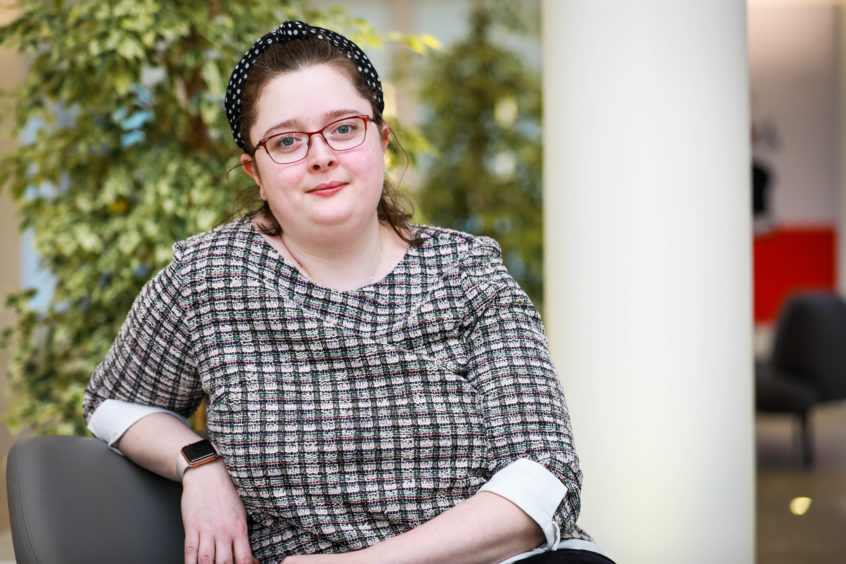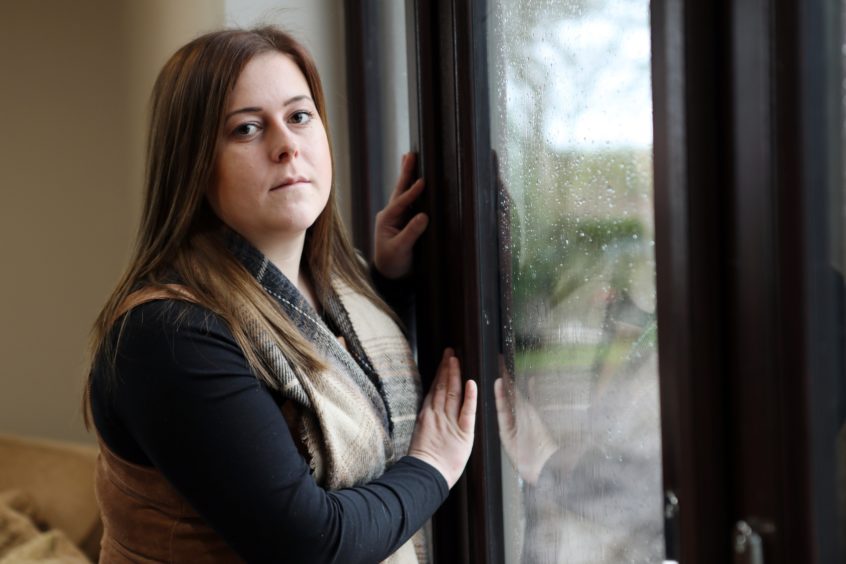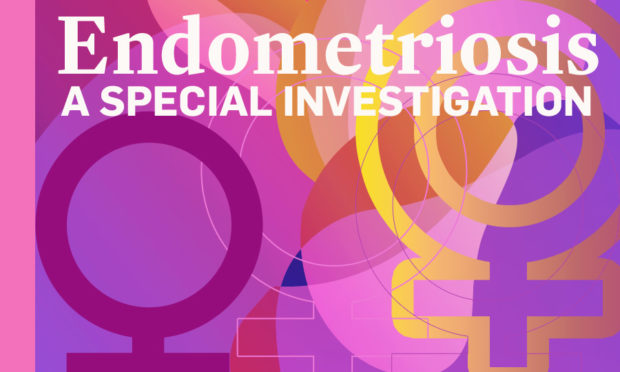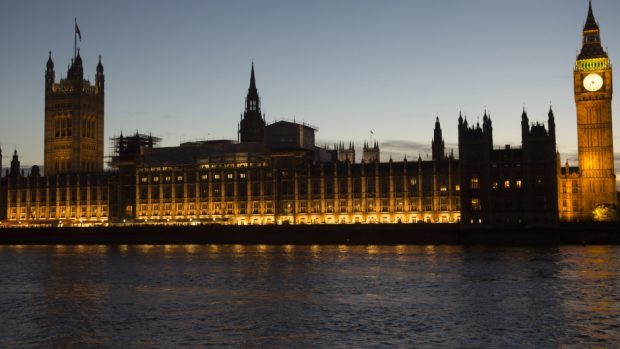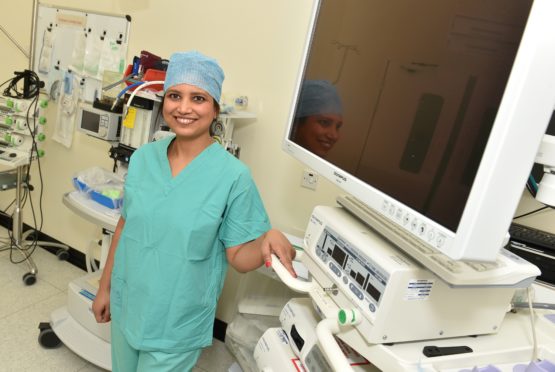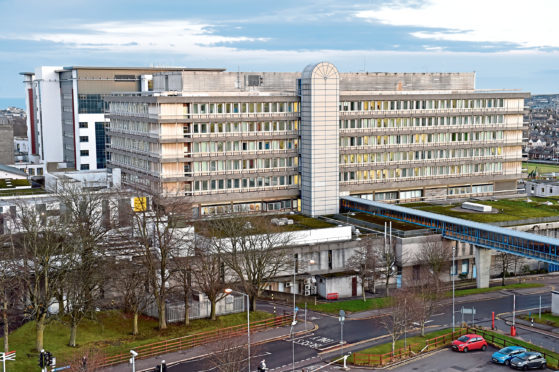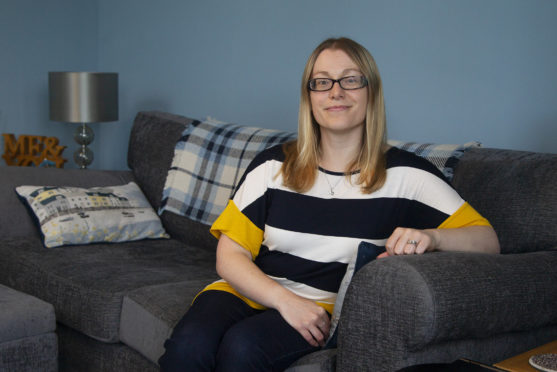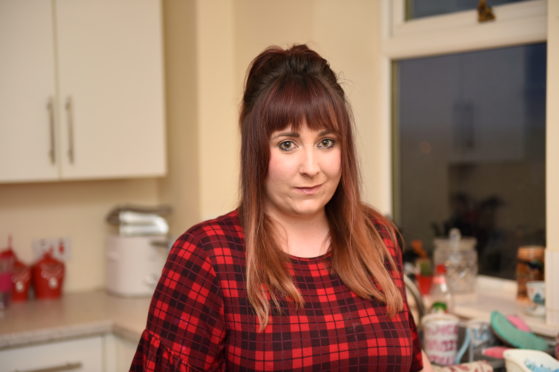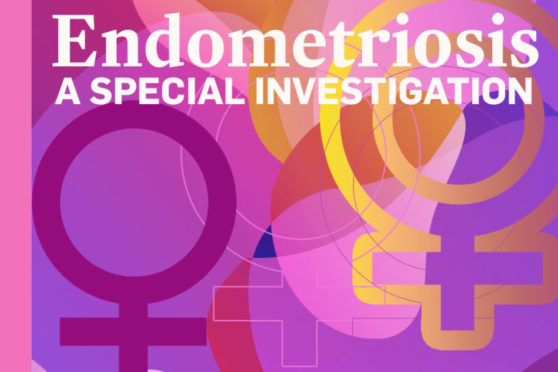“It’s tiring emotionally and physically. It has affected every element of my life…” “It’s very lonely and can consume you…” “I was on the verge of suicide…”
These are some of the heartbreaking comments we received from sufferers as we investigated the harsh realities of living with the chronic gynaecological condition endometriosis.
The long-term condition sees tissue similar to the lining of the womb start to grow in other places, such as the ovaries and fallopian tubes.
As MPs launch their own inquiry into the challenges faced by the 1.5 million women who suffer from the condition, we spoke to a number of women who explained the deep physical and emotional pain they experience from a condition which still has no cure.
Lauren Marcella, 27, has faced a 16-year battle with endometriosis. Her journey began when she was aged just 11. By 13 she was experiencing very intense and erratic bleeding.
That year, doctors had to act to remove a cyst from her ovary, almost losing the organ in the process, and she spent the next five years of her life in and out of hospital, forcing her to take time off school.
The 27-year-old, who was only officially diagnosed with the condition aged 18, said she is in pain “every single day”, to the point where she can struggle to walk.
She said: “People think it’s just like having a heavy period but I struggle to walk. I spent most of last year on morphine just to get through the week.”
Lauren, who is from Westhill in Aberdeenshire, said her experiences with the condition left her contemplating suicide last year.
She said: “It has been really horrific. I was on the verge of suicide last year. There’s not a lot of treatment plans. You’re just left on your own.
“It was named by the NHS as one of the 20 most painful conditions to have. There’s not a lot of money and the NHS is struggling.”
Endometriosis sufferers also experience agonising concerns over their future fertility, with some women struggling to fall pregnant or carry a baby to full term.
The condition can also cause sufferers to experience pain during and after sex.
Lauren said: “I’m thinking about my fertility. The only hope they give you is that you will be given IVF.
“I can’t really gauge what’s happening to my body — not until they do more tests and investigations. It’s actually carrying to full term that can be a problem.”
In terms of what Lauren would like to see come out of the newly-launched Westminster inquiry, she believes GPs need to look at the symptoms and not the statistics.
She said: “Young girls can be diagnosed as soon as they start their periods. A lot of girls are starting their period and the pain they’re living in is not normal. They shouldn’t be bleeding as heavily as they are.
“There needs to be more research done, lower waiting times for appointments, and GPs have to be armed with the information.”
‘I maybe took having children for granted before and now I don’t know…’
Vicky Chapman, 31, from Arbroath, set up the Endometriosis UK Dundee Support Group in January last year.
The 31-year-old HR worker was diagnosed aged 29, after struggling with years of heavy periods and later bad back pain.
She said: “I had recurring symptoms in terms of heavy periods but I didn’t think anything of it. It wasn’t until March 2017 that I got bad back pain.
“I saw a few different doctors and then saw a gynaecologist. I had never heard of endometriosis until it was picked up on a scan. I had an MRI and it was suspected endometriosis.”
Prior to having her laparoscopy in October that year, which is the procedure to confirm a diagnosis of the condition, Vicky lost around a stone and a half in weight and struggled to eat full meals.
Having support locally makes such a difference – knowing you’re not alone, it’s not all in your head and not having to justify how you are feeling.
She said: “I had to have time off work and couldn’t function properly.”
But she was later moved on to the mini contraceptive pill, which is helping to keep her symptoms “at bay”.
Vicky said: “I would say endometriosis has changed me – I definitely listen to my body more than I did before. I guess I maybe took having children for granted before and now I don’t know if I can have them.
“I’m lucky that some treatments have worked well for me but obviously with those come side-effects, which can differ from person to person.”
The 31-year-old said the support group she runs helps make a difference but said “more awareness” has to be raised.
She said: “I feel having support locally makes such a difference – knowing you’re not alone, it’s not all in your head and not having to justify how you are feeling.
“I hope my support group members find it as beneficial as I do.”
Vicky continued: “It is such a complex condition. I think more awareness needs to be raised. I feel like doctors need to be more aware at an earlier stage if people come in with period pain impacting their day to day life.
“It’s about listening to them. At the end of the day we all know our bodies better than anyone else does.”
‘It has affected every element of my life’
Emma Adam, who lives in Bridge of Don, Aberdeen, said the condition has robbed her of a long-held dream of falling pregnant and having a family with her fiancé Mathew.
The 28-year-old, who works as a digital development manager, has suffered from heavy, debilitating periods since she was 13 but was only officially diagnosed with endometriosis when she was 19.
She said: “It’s very isolating and you can feel like even with your loved ones you still have that level of detachment from them as they don’t fully understand it.
“It’s incredibly lonely and frustrating. It’s tiring in a way that you know you won’t get better. It’s tiring emotionally and physically. It has affected every element of my life.”
Emma, who has undergone three surgeries so far for her condition, has made the painful decision to abandon having children biologically, following a failed round of IVF.
To provide evidence to the All Party Parliamentary Group on Endometriosis inquiry click here
The couple had been trying to conceive for almost two years with no success and were told there was little else that could be done for Emma’s endometriosis as further surgery would increase scar tissue and a hysterectomy would have meant she couldn’t conceive.
She said: “I feel like I can’t do this. I don’t see a point where I’ll be able to do a cycle.
“We initially wanted to give myself time after the failed round before attempting round two but my pain was getting to the point I was moved from Tramadol (a strong painkiller) on to morphine.
“You can’t go through IVF while on Tramadol, let alone on morphine.
“We took the decision for the sake of my own health — both physical and mental — to draw a line under it because my pain was unbearable.
“I couldn’t see a way of not being on painkillers in the near future and I was just putting a lot of pressure on myself.
“I planned to have kids and I’m not going to be able to do that.”
It’s tiring in a way that you know you won’t get better. It’s tiring emotionally and physically. It has affected every element of my life.
Emma has been included in a new trial which will see her go through a chemical menopause long-term by receiving monthly injections.
This could be halted, should the couple wish to try to conceive again, but they have abandoned that plan.
Emma said: “I planned to have kids and I’m not going to be able to do that. I don’t have any regrets in our decision but I regret having this disease and what it’s led to but I’m not in control of that.”
‘I put on this front. I don’t like anybody knowing I’m in pain’
It took a year of waiting for Sarah Dunbar, from Aberlemno, just outside Forfar, to be officially diagnosed with endometriosis.
The 27-year-old suffered from heavy periods and later intense pelvic pain, which forced her to take time off school and work over the years.
She had suffered some symptoms since she was a teenager but was only diagnosed aged 25.
After my last operation I thought I was going to get my life back but I still have pelvic pain all the time.
Sarah said: “It was a bit of a battle to get seen by gynaecology. When I finally got diagnosed, it was a year later.
“I had about two or three years of trying all these different contraceptive pills and endometriosis was never mentioned. My sister had suggested it. I knew nothing about it.”
Sarah, who works as a carer, had surgery in March to remove the endometriosis, and had hoped that would improve her symptoms.
But she said: “After my last operation I thought I was going to get my life back but I still have pelvic pain all the time.
“It’s very lonely and can consume you. I put on this front. I don’t like anybody knowing I’m in pain.
“I’m very lucky I’ve got a supportive family and my partner Dale is just amazing.”
The newly-launched inquiry should look at tackling waiting times and ensuring that gynaecologists are given additional theatre capacity to treat patients, Sarah thinks.
She said: “Gynaecologists don’t get a a lot of theatre time. That’s a huge thing along with the waiting times.
“We feel like we don’t get the support.”
